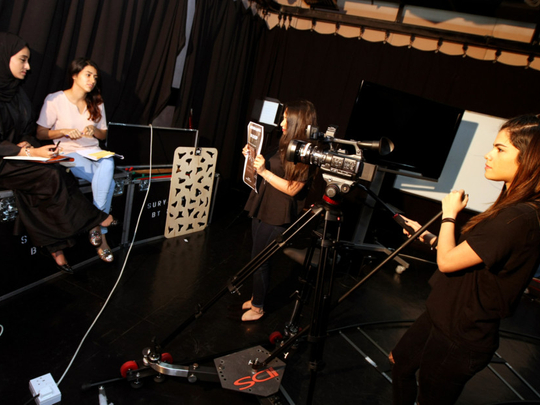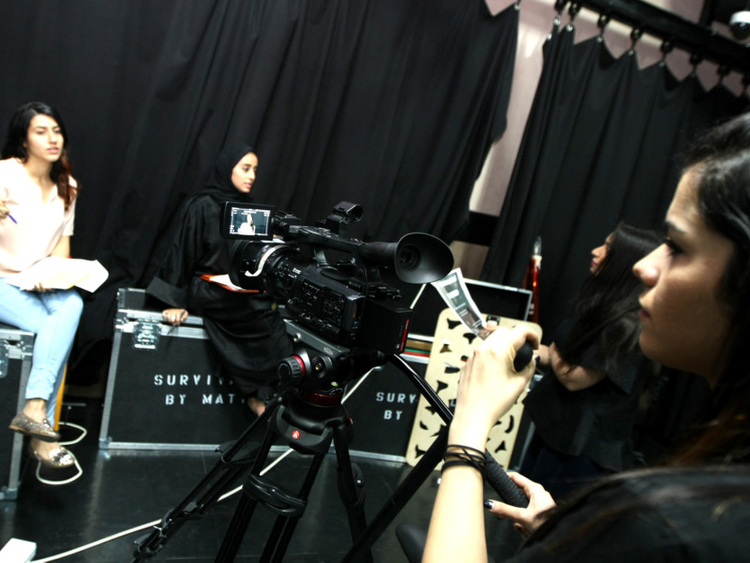
Dubai: A short-film by four media students from the American University in Dubai seeks to shed light on the inner struggles women face in conservative societies and how women must be confident to make their own choices and decisions.
The four students with a passion for digital production and story-telling are determined to not only get their senior project completed, but to send a message across about women’s rights and empowerment in the Middle East through a 12-minute film they will be shooting in an area of Dubai that has retained its rural charm.
Mahkameh Kazemi, the co-writer and director, says the storyline is inspired by a true story from a village to the south of Iran that is consistent with other stories she’s heard about women back in Iran. She adds that many such cases are also sidelined by the media.
“We want people to be able to know what our main character, a 23-year-old Iranian girl living in a conservative village, had to go through before making her final decision of either running away from the village or battling herself and accepting all the circumstances,” said Mahkameh, who is herself from Iran.
Discussing the film Broken Chador, which they said will be in Farsi, with subtitles in English and Arabic, Tatyana Khattar, the co-writer and production designer said the story is about a girl called Layla who lives with her strict father and younger brother.
“Layla holds a secret that noone knows about because she knows noone in her society will stand up for her and support her if she speaks out. She knows people will judge her, and so she seeks help from her estranged aunt who she knows is not stereotypical and will understand her situation,” said Tatyana. “Her aunt suggests she should escape the village or make the decision to stay and continue raising her brother, who she has been raising after their mother passed away.”
According to the team, the story might relate to a controversial topic but they’re keen on showing how women are wise enough to know what’s best for them and best for others around them.
“The story is relevant to any culture in the Middle East,” said Emirati Rawda Buhannad, who’s producing the film. “Layla is not a rebellious girl, but a girl who wants to make the right decision for her family and society. She holds on to her traditions and respects them. Since we live in a collective society, women here know that their decisions affect not only them but their whole family and reputation.”
Rawda said it is important for everyone who watches the film, regardless of their gender or where they come from, to understand what women have to go through and “that women can make their own choices, have a say and can stand up for themselves.”
The fourth member, Camillia Kazem, who is the co-writer and cinematographer, said the main character, Layla, is very passive to her situation at first but then starts actively responding to her situation despite all the barriers she faces.
“It is more of a realistic story. As we start filming, we will try to show Layla in a colourful and lively environment at home as she makes jam, and then, as soon as she leaves the house to sell the jam, the scenes will switch and become gloomy. This is meant to show how different she is at home and how she must change herself and represent her village when she’s walking outside, said Camillia, who is also from Iran.
Camillia said the shooting will take place in Ruwayyah and Khawaneej because the scenes are meant to be in a village.
The aspiring filmmakers said they are facing some challenges in terms of raising enough funds for their film. To raise funds, they used a digital platform called Aflamnah to pitch their stories and wait for people to support them.
“We will begin shooting by the end of March, but we are still struggling with renting locations, getting the props and the money needed to make this film. However, we are confident that people will support us through Aflamnah because we promised to reward them by including their name in our credits, but it all depends on how much they pledge,” said Camillia.







